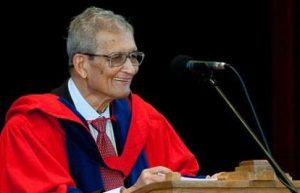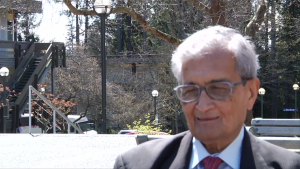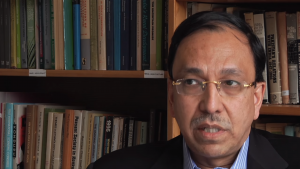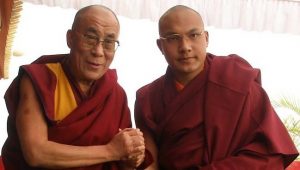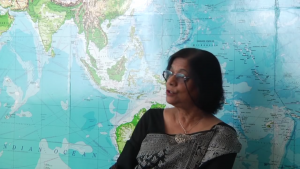Nobel Laureate Amartya Sen Receiving UBC Honorary Degree (Video Recording)
Memo #81 – Nobel laureate economist Amartya Sen was awarded an honorary degree by The University of British Columbia at a special ceremony on April 21, 2011. In his address, Dr. Sen argues for an interdisciplinary approach to the pursuit of knowledge, citing the economist Adam Smith as an exemplar of integrating disciplines and thereby enriching the very nature of reasoning itself. He further draws upon the pragmatic social strategy of the Indian Nobel laureate poet Rabindranath Tagore, whose ideal of inclusivity in both education and life would, says Dr. Sen, resonate profoundly with UBC’s own efforts at productive dialogue between disciplines.
Dr. Amartya Sen on Tagore’s Significance (Video Interview)
Memo #79 – On April 21, 2011, Amartya Sen, recipient of the 1998 Nobel Prize in Economic Sciences, was awarded an honorary degree by the University of British Columbia.
Tagore in Today’s World – Harvard Professor Sugata Bose (Video Interview)
Memo #74 – The University of British Columbia (UBC) celebrated the 150th birthday of Rabindranath Tagore, the first Asian to win the Nobel Prize for literature in 1913 and a towering figure in the world of poetry, literature, music, song, and philosophy. In a penetrating discussion, Sugata Bose, Gardiner Professor of Oceanic History and Affairs at Harvard University addresses the contemporary relevance of Tagore as something more than the “mystic poet” described by W. B. Yeats, the impact of Tagore’s upbringing in Bengal, and Tagore’s connection with the political figures of his era including the debate with Mahatma Gandhi on whether there was a divine role in the 1934 earthquake in Bihar.
Tough Choices Ahead for Global India
Memo #64 – This is a time of great tumult in the Middle East. All major global powers are struggling with tough choices to strike a balance between their values and strategic interests in responding to the unfolding crisis in Libya. India is no exception but it is particularly under the spotlight as it assumed the non-permanent membership of the United Nations Security Council (UNSC) in January.
Karmapa Controversy – Raid on a Tibetan Monastery in India
Memo #55 – There is media frenzy in India following a police raid on the temple residence of Ugyen Thinley Dorje (ཨོ་རྒྱན་འཕྲིན་ལས་རྡོ་རྗེ།) where $1.6 million in different foreign currencies – some in Chinese yuan – was found. Ugyen Dorje is the 17th Karmapa (ཀརྨ་པ་) and is second only to the Dalai Lama in Tibetan Buddhism.
NGOs Prompt Report on 2002 Gujarat Incident
Memo #44 – The 2002 Gujarat incident, in which inter-religious violence fuelled mass riots, resulted in gruesome deaths and injuries. The incident led to a rise in the number of cases of sexual assault and violence against women. On October 15 2010, Members of the Committee on the Elimination of All Forms of Discrimination against Women (CEDAW) took “the extraordinary measure of requesting a special report because of the seriousness of the violations, the large scale of the violence and the alarming reports that the Committee had seen at the time of the incident”. India submitted this exceptional report to CEDAW almost 9 years after the initial conflict.
Gender Issues in the Hindu Tradition
Memo #31 – Dr. Mandakranta Bose is a professor emerita at the Institute of Asian Research (IAR) at UBC. Her recent book, Women in the Hindu Tradition: Rules, Roles and Exceptions was the subject of an October interview in the Institute’s Behind the Book series.
